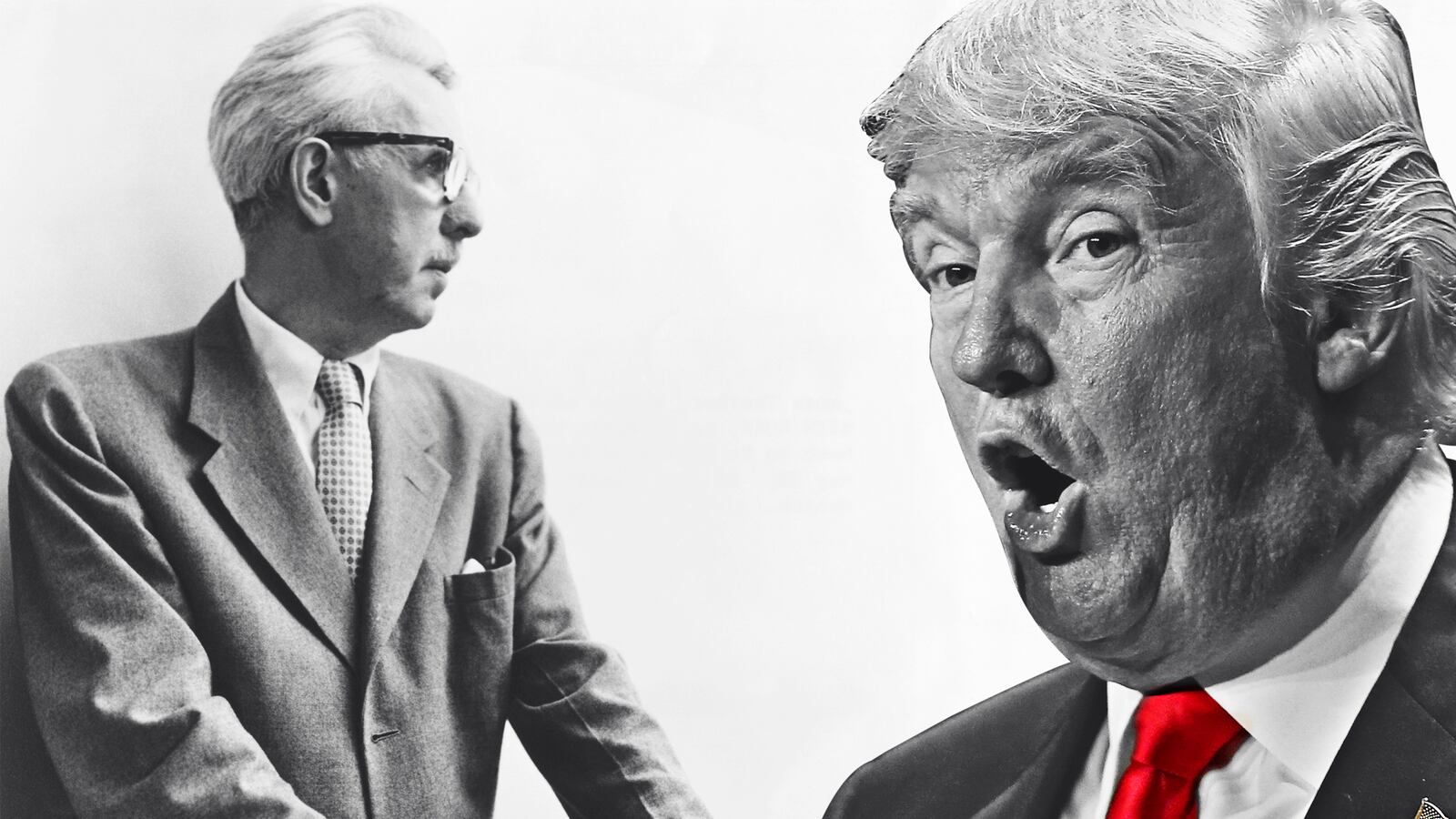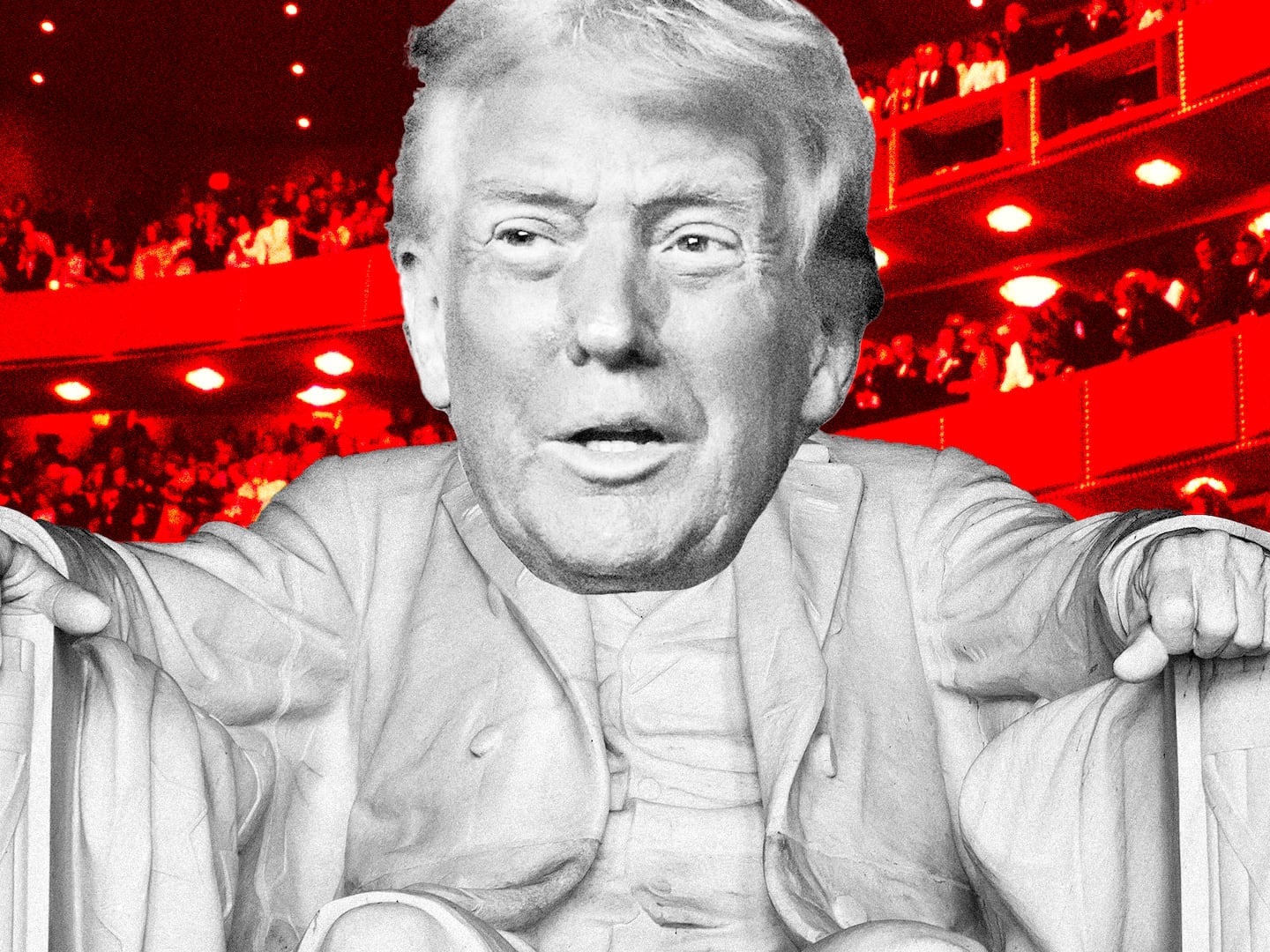Fast-forward to the night of July 20, 2016. Despite all the agonizing, the plotting, the Superpac ads, the embarrassing interviews, the assurances that followed the Wisconsin primary that his days were surely, clearly, numbered, Donald Trump has emerged as the nominee of the Republican Party for president of the United States.
What are the party elders to do, assuming they are convinced that a) Trump will lead his party to a defeat of historic proportions, jeopardizing their candidates at every level of the ballot, and that b) should he manage to win election, he would as president pose a clear and present danger to the national interest?
Do they refuse to endorse him? Throw their support behind an independent campaign? Join a “Republicans for Clinton” effort?
In their desperation, they might find a tempting, if clearly unacceptable alternative in an 80-year old short story by celebrated humorist James Thurber. While its plot is very different from a political campaign, and its conclusion far too dark for reality, GOP traditionalists might find themselves recognizing an establishment rocked by the arrival of a figure who has violated every norm, yet stands on the brink of immeasurably high status.
Thurber’s story, “The Greatest Man in the World,” (PDF) was published in The New Yorker in 1931, five years after Admiral Richard Byrd claimed to have been the first person ever to fly over the North Pole, and four years after Charles Lindbergh’s solo non-stop flight to Paris made him a worldwide celebrated hero. The story, set in 1950, looks back to 1937, when the most astonishing aviation feat ever was pulled off by the most unacceptable hero, ever.
Using words that might well apply to the current political campaign, Thurber writes, “it was inevitable that some day there would come roaring out of the skies a national hero of insufficient intelligence, background, and character successfully to endure the mounting orgies of glory prepared for aviators who stayed up a long time or flew a great distance. Both Lindbergh and Byrd, fortunately for national decorum and international amity, had been gentlemen; so had our other famous aviators.” (Thurber wrote before Byrd’s feat was called into question and well before Lindbergh embraced isolationism seasoned with a generous dose of anti-Semitism).
In Thurber’s tale, a mechanic’s helper named Jack (“Pal”) Smurch flies a one-engine, secondhand airplane non-stop around the world; the plane was powered by auxiliary gas tanks, Smurch by a gallon of bootleg gin. By the time Smurch returns to Long Island after his nine-day flight, his feat has become a global obsession, and the world is ready to celebrate his astonishing feat. The press and the political leaders, however, have discovered an unhappy fact: Jackie Smurch is a lout, a vulgarian, a train wreck of a man. (His father and brother are criminals; he himself knifed a school principal and tried to steal the altar cloth from a church).
When he recovers from exhaustion, he spouts insult after insult—at Lindbergh, and at two French fliers who died attempting a long-distance flight (“I made an ass of them two frogs,” he says.) And when he meets with a group of high-ranking public officials, including the president of the United States, he snaps, “Let’s get the hell out of here? When do I start cuttin’ in on de parties, huh?” And he asks, what about “money! An’ big money!”
It’s at this point that, at a silent signal from the president, one of the men in the room seizes Smurch by the seat of his pants … and hurls him out of a ninth-story window … and the world organizes a solemn tribute to the sudden, sad loss of the world’s greatest hero.
So—assuming I do not have to deny that I am proposing defenestration—what’s the parallel? For one thing, a Trump nomination would be the political equivalent of a round-the-world non-stop flight in a single-engine, secondhand plane. He would have won with a staggeringly small amount of money, an effort devoid of any strategic thinking, a campaign that sought to attract voters with none of the tools of the 21st century save Tweets.
For another, Trump has indeed “come roaring out of the skies [with] insufficient intelligence, background, and character …” Whatever his IQ, Trump’s cluelessness about geography, economics, any public policy issue, is nothing short of staggering. His background, at least once you get past the bluster, suggests a life spent in personal aggrandizement and lawsuits by aggrieved customers and colleagues. As for character, put it this way: George W. Bush got a lot of mileage in 2000 with his pledge to “restore honor and integrity to the White House.” If Trump were to utter those words, it’s hard to know who would start laughing first—his audience, or himself.
All of which means that the older, more traditional slice of the Republican Party would find itself in a position utterly unlike anything we have seen in elections past. Sure, we’ve seen losing factions of a party unwilling to support a nominee—think Goldwater, think McGovern—but we’ve never seen a situation where a nominee so blatantly ignored or flouted the most fundamental standards of speech or conduct, all while lacking the most basic qualities we’ve (perhaps allegedly) thought necessary for any president of any party.
So maybe, just to be on the safe side, if Trump wins on the first ballot, and finds himself invited to a unity meeting on the ninth floor of a Cleveland hotel, he might want to suggest that the meeting be moved to a ground-floor lounge.






